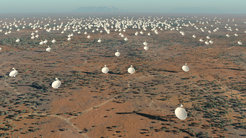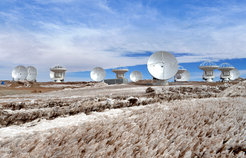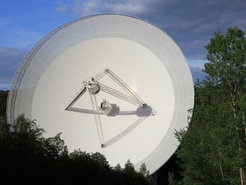A Boost for European Radio Astronomy
27 Partner Organizations with World-class Instruments work together in Observations, Research & Development


The main goal of RadioNet3 is to maximise use of the complete range of 18 state-of-the-art European radio-astronomical facilities, such as the 100m radio telescope of MPIfR (Fig 2). They offer access over an unprecedented range of wavelengths, from the largely uncharted decametric astronomy explored using the Low-Frequency Array (LOFAR), to the sub-millimetre range offered by telescopes in Hawaii (JCMT), France/Spain (IRAM) and Chile (APEX, ALMA). Among the facilities to which RadioNet provides access are recognized European SKA pathfinder efforts, such as the European VLBI Network (EVN), with its new real-time capabilities, e-MERLIN, the multibeam upgrade of Westerbork and the aforementioned LOFAR. In addition, RadioNet3 will play a role in stimulating European users to take advantage of two precursor projects for the SKA: ASKAP and MeerKAT (under construction in Australia and South Africa, respectively).
The networking activities of RadioNet3 will transform the way science is conducted in Europe; they will provide a natural forum for developing European collaborations, for the sharing of ideas and results and for mobilizing the researchers themselves. This is important with the emergence of new research opportunities through SKA and its pathfinder telescopes.
The RadioNet3 research programme will support targeted Research & Development to the facilities, developing new techniques that allow radio astronomers to make more efficient use of telescopes. The developments will provide an essential step in making sure that the European radio astronomical facilities offer competitive opportunities in the world.
"Our aim is to establish a long-term strategy for structuring radio astronomy in Europe", says Anton Zensus, Director at MPIfR and coordinator of the RadioNet3 project. "We will make sure the results are available to the outside world and the next generation of scientists and engineers are prepared for the advent of the new generation radio telescopes."



